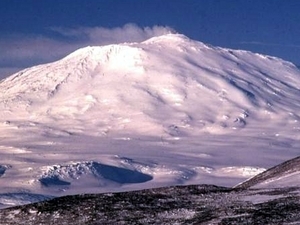
Campbell, David A., Greek Lyric, Volume II: Anacreon, Anacreontea, Choral Lyric from Olympus to Alcman, edited and translated by David A.Caldwell, Richard, Hesiod's Theogony, Focus Publishing / R.P., Etymological Dictionary of Greek, 2 vols. Online version at the Perseus Digital Library. Aristophanes, Birds in The Complete Greek Drama, vol.
#MOUNT EREBUS MAP FREE#
Look up Erebus in Wiktionary, the free dictionary. The Sources of Spenser's Classical Mythology.

Similarly, in Quintus Smyrnaeus, Fall of Troy, 12.18–19: "When rose the dawn ( Eos), and thrust back kindly night ( Nyx) o Erebus.". (See also in the " Homeric Hymn" to Demeter (2), 335–339, 347–349.) In Ovid's Metamorphoses, Proserpina is called the "queen of Erebus" ( 5.572–573), the underworld deities are called the "gods of Erebus" ( 10.74), and Circe "invoke the aid of Night ( Nyx) and all the gods of Night from Erebus and Chaos" ( 14.394–396). 24, the word was used "quite often from the time of Homer onwards as a poetic name for the Underworld in its nature as a realm of gloom".

In Cicero's De Natura Deorum, the following are "fabled" to be the children of Erebus and Nox (Night): Aether, Dies (Day), Amor (Love), Dolus (Guile), Metus (Fear), Labor (Toil), Invidentia (Envy), Fatum (Fate), Senectus (Old Age), Mors (Death), Tenebrae (Darkness), Miseria (Misery), Querella (Lamentation), Gratia (Favour), Fraus (Fraud), Pertinacia (Obstinacy), the Parcae (the Fates), the Hesperides, and the Somnia (Dreams). Īccording to the Fabulae of Hyginus, Erebus, Nox (Night), Aether (Brightness), and Dies (Day) are the offspring of Chaos and Caligine (Mist) and Erebus, by Nox, is the father of Fate, Old age, Death, Destruction, Strife, Sleep, Dreams, Thoughtfulness, Hedymeles, Porphyrion, Epaphus, Discord, Misery, Petulance, Nemesis, Cheerfulness, Friendship, Pity, Styx, the Parcae ( Clotho, Lachesis, and Atropos), and the Hesperides (Aegle, Hesperia, and Erythea). The Greek oral poet Hesiod's Theogony (8th century BCE) portrays Erebus as the offspring of Chaos, and as the brother of Nyx (Night), by whom he is the father of Aether (Brightness) and Hemera (Day). Sanskrit rájas, Gothic riqis, Old Norse røkkr).

The name Ἔρεβος itself originates from Proto-Indo-European *h₁regʷ-es/os- "darkness" (cf. The perceived meaning of Erebus is "darkness" the first recorded instance of it was "place of darkness between earth and Hades". Hesiod's Theogony identifies him as one of the first five beings in existence, born of Chaos.

In Greek mythology and Roman mythology, Erebus ( / ˈ ɛr ɪ b ə s/ Ancient Greek: Ἔρεβος, romanized: Érebos, "deep darkness, shadow"), or Erebos, is the personification of darkness and one of the primordial deities.


 0 kommentar(er)
0 kommentar(er)
